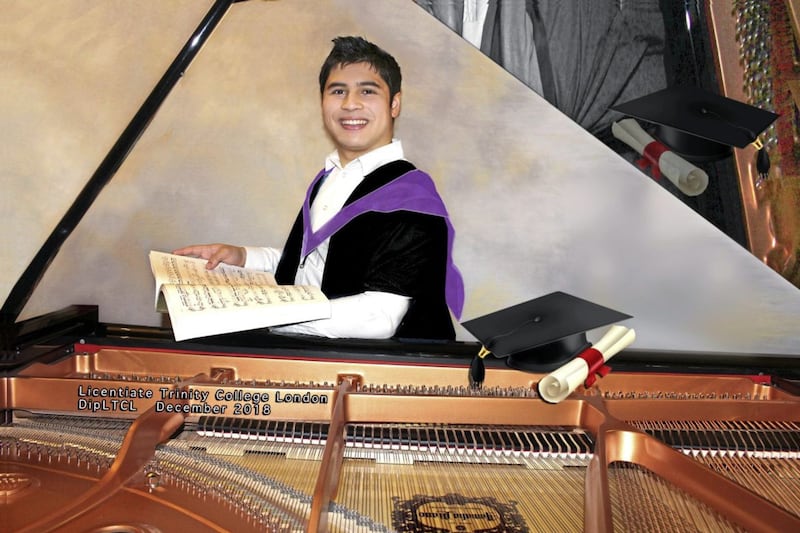BILL Morrison and his wife are moving house – always a stressful event, but needs must in this case because Bill has been diagnosed with Parkinson’s disease and living in a bungalow will make life easier in the future.
“I still drive, I go to the gym, keep busy and try to have a positive mental attitude. Exercise is important to keep the muscles active so I walk to the shop for the paper every day. It takes half an hour and although some days are good there are bad days too but I try to keep that routine going.”
In 2009 Bill noticed he was beginning to slow down, gradually thinking, talking and moving more slowly. Although he had difficulty focusing on more than one thing at a time, unlike many sufferers, he didn’t get depressed.
Eventually he went through a series of tests, to be told he had early Parkinson’s symptoms.
“I was made aware of the nature of this progressive neurological degeneration but they said it won’t kill me so I’ll carry on living although I can expect that living will get pretty tough as the years wear on.”
The main symptoms are tremor, slowness of movement and rigidity and it’s reckoned that one person in 500 are diagnosed, here the youngest is just 18.
Every hour someone in the UK is told they have Parkinson's, for which there currently is no cure. Recent research has shown that drugs used to treat cancer and liver conditions may hold promise in treating Parkinson’s and Parkinson’s UK is funding research to develop gene therapy – an innovative approach looking into the role genes play in those developing Parkinson’s and hopefully to slow or halt the development of the disease.
Benny Marley is 66 and he’s coming to terms with his diagnoses.
“There are wee periods when I think I don’t have it and consider stopping taking my medication but I don’t because other days I know I do have it.” For Benny it’s his speech that worries him: “Sometimes I feel removed from what I’m saying, I hear myself in a funny sort of way.”
Like Bill, he has a determination to carry on in as normal a way as possible but, also like Bill, it takes him more time to get going in the morning, dressing and preparing for the day. He lies in the bath to ease his bones; the medication helps and the support of Parkinson’s UK NI is vital.
In fact he says he’s happier than he’s ever been. He’s come to terms with the shock of diagnosis and he’s facing his future surrounded by his family, grandchildren and great grandchild, he has time to enjoy them like never before.
Is Parkinson’s inherited? There isn’t a simple answer but, according to Dr Patrick Lewis of the University of Reading, probably in 90 per cent of cases there is no form of family connection with the disease.
Bill is realistic about the future.
“I might have to use a stick soon but many 75-year-olds do! The doctor tells me I’m doing well although some day he’ll have to up the medication. I may have Parkinson’s but it doesn’t have me.”
The two men keep busy and fight the symptoms. Bill has written a terrific book, Big Hand for the Band, a fascinating look at the rock 'n’roll years, a delight for those of us who danced in the 50s, and Benny is involved in a Falls Road exercise programme and is now leading a walking group.
According to Parkinson’s UK when it comes to the vast majority of people with Parkinson's it’s not known exactly what causes the condition. In most cases the cause is likely to be a complex jigsaw puzzle, no two cases are the same.
Recently research published by Sheffield Hallam University and Parkinson’s UK shows that people affected by Parkinson’s are bearing the additional financial brunt of their diagnosis with many families struggling with financial losses of more than £15,000 every year. These organisations are targeting the powers that be to make changes to welfare support and social care.
Nicola Moore, Parkinson’s UK Northern Ireland, said: “For the first time, this research has exposed the full financial impact of Parkinson’s and it’s shocking that people affected by the condition are being hit by such devastating losses. People are being penalised by heavily reduced incomes and forced to pay for a lifetime of mobility aids, home alterations and care costs – all while battling a debilitating progressive condition for which there is no cure.”
Finally, this message from a member of Parkinson’s NI: “Please ask people when they meet me to be patient. If I don’t smile I’m not being unfriendly – I can’t move the muscles on my face. Listen carefully to understand what I’m saying and please don’t stare if I’m unsteady. Please don’t assume I’m drunk. I’ll tell you if I need your help. A little understanding would make my life a lot easier.”
www.parkinsons.org.uk: free helpline 0808 800 0303. NI office (028) 90923370; email northernireland@parkinsons.org.uk
CHILD PRODIGY GROWING UP
YOUNG Rowel Friers is rapidly becoming an international star. Since he was four he has been astounding people with his piano playing, he won his first competition when he was five. His CV is spectacular including his concert at Carnegie Hall New York, and on Thursday November 9 he will be playing to an audience of 1,000 at the Bangor Elim Complex at 7.30pm.
Last year Rowel took a special interest in Milo Smith who passed away at 18 years of age from cancer and raised funds in memory of this young student. This year 14-year-old Rowel is again supporting the RVH Children’s Cancer Unit in memory of Megan Ogle and Joshua Martin. The concert features the Bangor Ladies Choir and singer Paul Murphy.
Tickets: tbennington09@yahoo.co.uk telephone 0779 9335 244.









